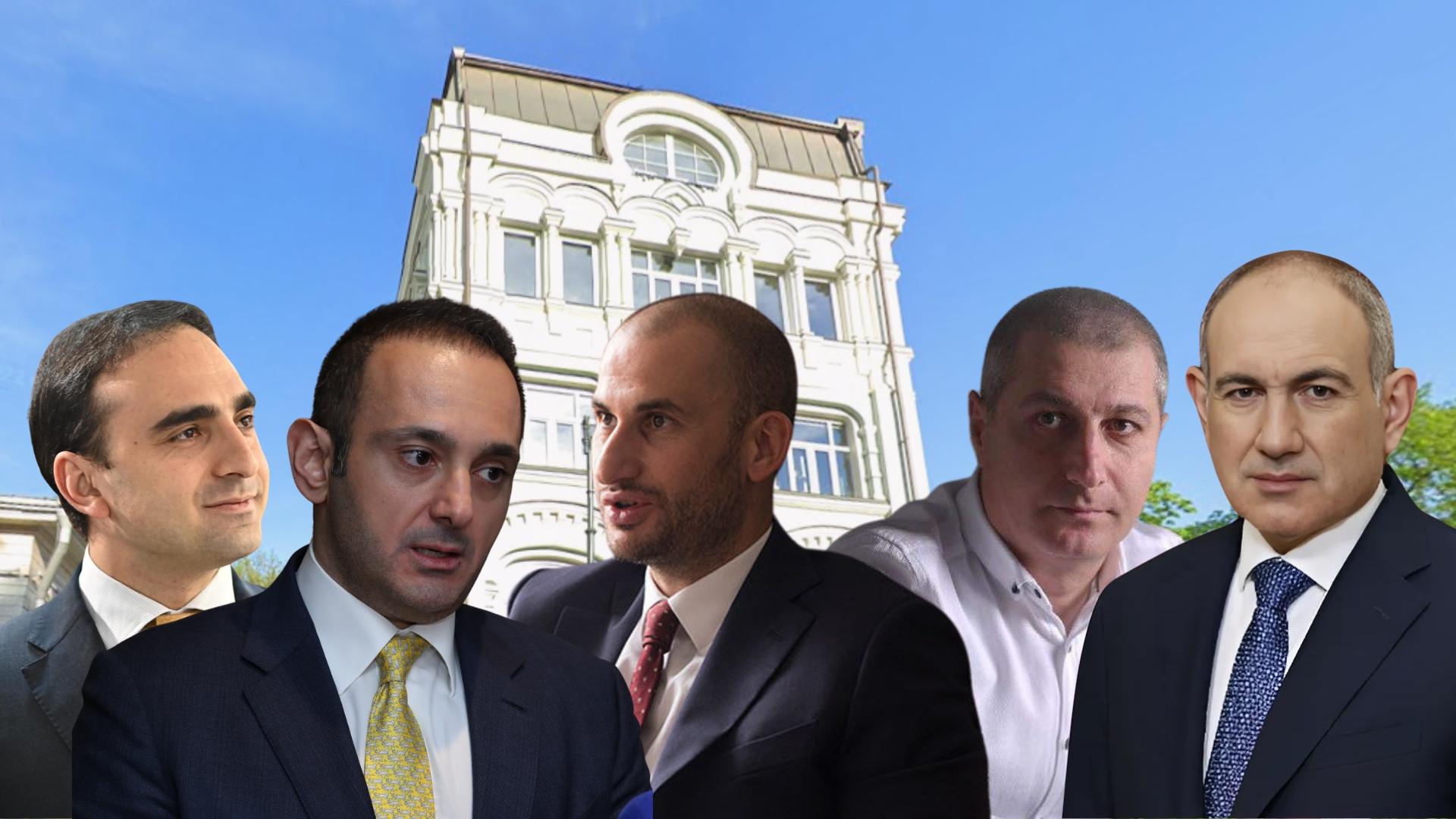
Sketchy Track Record: $6.9 Million and the Armenian National Interests Fund’s Moscow Branch
The Moscow branch office of the Armenian National Interests Fund (ANIF), a foreign direct investment fund operating under the government of Armenia (better known as ANIF), received an allocation of AMD 2.7 billion from ANIF between 2020 and 2024, but the fund’s current management does not have any information about the projects implemented by this branch.
ANIF is aware of only one project that remained unfinished.
At the current exchange rate, AMD 2.7 billion drams is equal to US$ 6.9 million. So, why did ANIF direct such huge funds to its Moscow branch, which, as we can conclude from the information provided by the current ANIF leadership, was a useless structure?
Sergey Grigorian, the former deputy director of ANIF, as well as the head of the Moscow representative office, claims that the information from the current management of the state-owned company does not correspond to reality, since the branch engaged in various programs and showed results. He also notes that ANIF was dismantled because of a “raid seizure” by “unprofessional and incompetent” individuals.
ANIF, created by the Nikol Pashinyan’s government received state registration in May 2019. From its establishment until November 2023, the chairman of its board of directors was Tigran Avinyan, who in 2018-2021 was also Armenia’s Deputy Prime Minister, and Yerevan Deputy Mayor between 2022 and 2023.
During Avinyan's term, from 2019 to 2024, ANIF’s executive director was David Papazian, who was dismissed from his position in January 2024 by the new board of directors.
Five years after the company's creation, in the spring of 2024, Pashinyan's government decided to begin the process of terminating ANIF's activities. Today, ANIF still exists and operates, but its inglorious end is not far off.
In August 2024, the government decided that after accepting ANIF's shares and land plots in several joint-stock companies as donations, it should be liquidated.
The company currently employs three individuals: the acting director, a senior accountant, and a legal advisor, who was hired in December 2024 for the specific purpose of filing an appeal within the framework of the legal dispute with former director Papazian and protecting ANIF's interests.
Let us recall that Papazian had challenged, in court, the decision of the ANIF Board of Directors to dismiss him from his position in January 2024 and had won in the Court of First Instance in the fall of the same year, but the company filed an appeal.
Let us also not forget that ANIF has found itself in a corruption scandal. The articles of abuse of official authority and embezzlement of entrusted property are at the core of the criminal proceedings initiated by Armenia’s Investigative Committee. The above are considered corruption crimes.
There are no defendants in the criminal proceedings to date, but Pashinyan gave the following assessment of ANIF at his press conference on January 31.
“I assess it as a failure, as a disgrace, I evaluate it as very bad. Who should be judged? Should it be judged or should it not be judged? I can have an opinion, but my opinion de jure cannot have legal force in this case. I also consider it an unacceptable abuse of trust. Unacceptable, disgraceful… whatever word you want to call it, I will agree with those words.”
And to the question of whether all this should have political consequences (former chair of the ANIF board of directors Avinyan is today the mayor of Yerevan and a member of the board of the Civil Contract party led by Pashinyan), the prime minister responded.
"First, we need to find out what happened, its accounting must be clarified... Any business activity has an element of risk. But, on the other hand, there are shares that are state-owned. Another issue is how those companies are, how well they were managed, how effectively they were managed. This requires a more in-depth analysis, and law enforcement should deal with it. But if it's about a political assessment, I say that assessment is a failure and a disgrace. There is another nuance here, because there are discussions on this topic, and it's not like there is a consensus. There are voices that say that the assessment of the situation is not correct. I don't want to lay blame. There are shares, etc., They need to be assessed. There are successful business examples that are still operating today, etc."
If we base our conclusion on the data provided by the current ANIF leadership, then the billions of AMD received by the Moscow branch and the zero results recorded in return, allow us to place it not among successful examples, but within the framework of the disgrace and failure that Pashinyan called it. However, the head of the representative office, Sergey Grigorian, claims that employees of the branch his heads have been involved in several projects that have been successful. We will discuss them below.
ANIF's three branches are effectively closed
The Armenian State Interests Fund CJSC had three foreign representative offices: in Abu Dhabi, Moscow, and Paris. As we learned from the company's acting director, David Mkrtumyan, who has been in that position since July 2024, none of them operate today.
The Paris branch office is closed (according to the French official gazette, its activities were terminated on August 31, 2023), and steps are being taken to close/liquidate the Moscow representative office and the ANIV SPV company registered in Abu Dhabi.
The Moscow office received state registration in the Russian Federation on December 17, 2019. Its head was Sergey Grigorian, who was also (since July 2019) the deputy director of ANIF under David Papazian.
| An economist by profession, Grigorian, before joining ANIF, was the advisor to the Chairman of the Board and the beneficiary owner of Ardshinbank Karen Safaryan from 2009 to 2019. It should be noted that one of Safaryan's partners was Armenian Deputy Prime Minister Mher Grigoryan, who was the Chairman of the Management Board of Ardshinbank from 2011 to 2018. Grigorian also held various positions in Russian organizations and companies. From 2007 to 2018, he was the Executive Vice President of the Association of Russian Banks (ARB), and the Chairman of the ARB is Garegin Tosunyan, who is also a member of the Ardshinbank Board. In 2014, Sergey Grigorian became a member of the Board of Directors of the Russian Unistream Bank (the beneficiary owners of the bank are George Piskov and Gagik Zakaryan). |
Armenia’s State Supervision Service (SSS), based on the investigation of which criminal proceedings were initiated at Investigative Committee, made several revelations about ANIF in 2023. SSS head Romanos Petrosyan told Radio Liberty that there were specialists in the state-owned company, including in the top management body, who exercised their powers simultaneously both in the central office and in one or two of the representative offices. Petrosyan was probably referring to Sergey Grigorian, among others.
The latter sent a twenty-page response after Hetq’s written questions. According to ANIF’s former deputy director, there is no legislative prohibition on working at the headquarters and simultaneously being the head of the representative office; moreover, such combinations are accepted in international business practice.
"Unfortunately, it is not possible from a legislative point of view to challenge the SSS document in court. If there were such an opportunity, then, I think, the SSS document could not withstand our weighty counterarguments in court," Grigorian told Hetq.
When asked by Hetq whether the company's current management considers his combination of two positions (ANIF Deputy Director and Head of the Moscow Office) to be legal, and if so, whether this style of work was justified/grounded or effective, ANIF Acting Director David Mkrtumyan responded that according to the Armenia’s Labor Code the daily working hours of an employee with two or more employment contracts (including breaks for rest and meals) cannot exceed twelve hours per day.
Grigorian’s working hours as deputy director were contractually set at forty hours per week, five-day workweek, eight hours per day. At the end of December 2019, Grigorian’s working hours per day became six hours, i.e., thirty hours per week.
Days later, ANIF and Grigorian signed a new contract, under which the latter became the head of the Moscow representative office. The working hours were set at a five-day work week - twenty hours per week, i.e., four hours per day.
A comparison of the two contracts shows that Sergey Grigorian’s daily working hours were ten 6+4), and weekly fifty (30+20). As mentioned, according to Armenia’s Labor Code, the maximum daily working hours are twelve hours, and the maximum weekly working hours are forty-eight hours, while in Grigorian's case it was fifty.
However, ANIF Acting Director David Mkrtumyan refrained from assessing the steps taken by the former management of the state-owned CJSC: “Based on the fact that the RA State Supervisory Service has conducted investigations into the company, as well as taking into account the existence of the criminal case(s) initiated, the company cannot currently express a position on the compliance with the legislation and justification/effectiveness of the practices you mentioned.”
Grigorian, however, told Hetq that he had not committed any violation.
“There was no violation of labor legislation by me or my employer. I was hired in Armenia in accordance with its labor legislation, and in Russia, in accordance with that country’s labor code. Accordingly, there can be no question of any violation of Armenian legislation. Moreover, as you know, in addition to the fund’s representation and headquarters, I was also involved in other projects both in Russia and Armenia. Even considering this additional activity, labor legislation was not violated by either me or any employer. For your information, I would like to note that for me, it is quite comfortable to work twelve or thirteen hours a day," said the former ANIF deputy director and branch manager.
ANIF’s Moscow branch received $6.9 million in five years
Between 2020 and 2024, a total of AMD 2.7 billion ($6.9 million) were transferred from ANIF bank accounts to its Moscow office. Of this, AMD 1.6 billion ($6 million) was spent on salaries and related payments.
The Moscow branch has had this many employees over the years: 2020 – fifteen, 2021 – twelve, 2022 – four, 2023 – seven, 2024 – seven.
ANIF’s current head, David Mkrtumyan, told Hetq that additional research is being conducted to collect data on the annual budgets of the Moscow office.
Referring to salaries and other payments, the former head of ANIF’s Moscow branch office, Sergey Grigorian, noted that he did not have data on the branch’s budgets over the years, therefore he cannot confirm that $6 million out of $6.9 million was spent on salaries. However, he noted: “Some of the information you received from the current ANIF leadership is, to put it mildly, unreliable. However, even if we assume that this figure is correct, there is nothing terrible in it. At the peak of its activity, the representative office employed thirteen-fifteen people. If you convert the budget you mentioned into an average monthly salary for an employee, then the salary for such a level of specialists is not high either in Moscow, or in Yerevan, and most likely in any other city in the world.”
Grigorian gave high marks to the former employees of both the branch he headed and the central office.
“I consider the most important achievement of both the Moscow office and the headquarters to be the involvement and formation of an extraordinary team, which has been one of ANIF’s strategic goals – to create a team of highly qualified specialists to ensure long-term results for the Armenian economy. A simple journalistic investigation will easily reveal what kind of specialists worked in the Moscow representative office and headquarters, as well as what results are now being provided by those people who were expelled from ANIF by those who asked what we were doing with that money. Without revealing any names, I would like to note that some of the former employees of ANIF’s Moscow representative office and headquarters are founders and managers of successful large businesses in Armenia and Russia in many areas, some manage one of the largest money transfer systems in Russia, others manage the finances of the largest payment and settlement system operating in the CIS, others create and manage international investment funds worth of several hundred million dollars or they bring the company they manage to the list of the fifty best companies in the world in their professional field. But there were those who said we don't need such people, with that money, and that they could do the same. The problem is that they don't do anything and only criticize those who do, including so that they don't look weak against the background of those who do," Grigorian said.
Hetq previously wrote about people who worked in the ANIF security department. It turned out that they were relatives of law enforcement officers.
On February 16, 2024, then acting director of ANIF Tigran Ghazaryan (he replaced David Papazian in January), ordered Moscow office head Sergey Grigorian to terminate the contracts of seven employees and make a final settlement. This order tells us that the contracts were signed in dollars, but Ghazaryan ordered, regardless of this circumstance, to make payments in rubles. Accordingly, the final settlement was to include the salary, payments equivalent to it, as well as compensation in the amount of three times the average monthly salary.
Grigorian and the other six employees were paid by ANIF when it transferred 13.4 million rubles to the Moscow office to cover the expenses stipulated in the final settlement. Ghazaryan also ordered that the bank balance of the representative office be transferred to ANIF's account after the final settlement.
However, despite the dismissal of all employees, including the branch manager, the Moscow office formally still exists, and Grigorian remains its director on paper.
The latter is dissatisfied with this circumstance, which he also conveyed to Hetq.
"The ANIF management has not yet seen fit or is unable to officially remove me from the position of head in the Russian tax authority, although it has been more than a year since my employment contract was terminated, and I have repeatedly written about the need to officially remove me from the position of head."
Where and from whom did ANIF's Moscow office rent space
As mentioned, ANIF’s Moscow office has not yet been officially closed/liquidated. Moreover, according to Russian sources, when registering in 2019, its main type of activity was advertising agency activities.
The branch is registered at 37/7 Ostozhenka, Moscow, Building 2. This is a historical building built in 1901. Next to it, at 37/7 Ostozhenka, Building 1, is the house-museum of the famous Russian writer Ivan Turgenev. Although the second building was built after the writer’s death and was intended to be used as a warehouse and auction house, it was part of the common estate. In 2007, the Moscow authorities transferred the former estate to the Pushkin State Museum to establish a Turgenev Museum on the site. The museum opened in 2009 and is considered a branch of the Pushkin State Museum.
In 2019, an announcement was posted on the now-defunct Turgenev Museum website about the long-term lease of premises at Ostozhenka 37/7, Building 2 on behalf of the owner. It was noted that the minimum rental area is 74 square meters (the entire floor). Note that building 2 is a brick four-story building, which also has a basement and an attic.
ANIF’s Moscow branch occupied the entire fourth floor of this building (76.5 square meters). Acting Director David Mkrtumyan told Hetq that the lease agreement was signed in August 2020 for eleven months, with a monthly rent of 220,000 rubles (including VAT).
According to Mkrtumyan, the agreement was signed with Ratmir-ADS JSC (АО “Ратмир-АДС”), which manages and leases its own and leased real estate. Among the owners of this company are Russian-Armenian businessman Aram Yekavyan and his Manolium-Processing LLC. According to Russian press reports, Yekavyan, a native of Orenburg, participated in the Russian oil and gas sector in the 1990s and 2000s, and in 2017 it was revealed that he had become a beneficiary shareholder of Russol LLC, the largest salt producer in Russia. Russian companies related to Yekavyan can be seen here.
In essence, Yekavyan’s company Ratmir-ADS was the manager of the leased real estate of ANIF’s Moscow branch.
According to Grigorian, after ANIF, his company leased the space, which ANIF benefited from
It is noteworthy that the current ANIF management does not know the details of the further course of the lease agreement signed for eleven months in August 2020. “Additional work is being carried out to obtain information on extension, amendment or termination of the agreement,” ANIF told Hetq.
And Sergey Grigorian provided Hetq with some details.
“In 2022, due to the Russian-Ukrainian conflict, the ANIF Board of Directors decided to reduce the activities of the Moscow office, as well as to abandon the leased space. Some employees of the office moved to Yerevan, and their employment contracts were re-registered with the parent organization. The remaining employees in Moscow switched to remote work. The contract between the ANIF office in Moscow and the lessor was terminated. The fund stopped paying rent. Most of the property belonging to the office (except for the laptops of the remaining employees and one safe deposit box) was moved to the Yerevan office,” Grigoryan said, adding, “Since the premises previously rented by ANIF were rented at a very attractive price as a result of negotiations conducted by me, I decided to move the companies related to me to the specified address.”
Hetq has found out that in the summer of 2022, two of the Russian companies associated with Grigorian have moved to this address, the fourth floor of Building 2 on Ostozhenka 37/7.
Grigorian is the general director of the Moscow joint-stock company Evabeta (АО Евабета), which is engaged in the provision of IT services in the field of finance, asset management and risk assessment. There are companies with this name in Italy, UK, Russia, and previously also in Armenia. Their founder is an Italian. In August 2022, the Russian Evabeta moved from another Moscow address to the fourth floor of Building 2 on Ostozhenka 37/7.
Days later, Evatech LLC (ООО Еватек) moved from the same address to Ostozhenka. Evabeta and Evatek are interconnected. There are companies named Evatech (formerly Evamilia) in Canada, Russia, and Armenia. The owners of the Russian Evatech are Paruyr Hakobyan (50%, also the owner of the Armenian Evatech LLC), Sergey Grigorian (25%) and Valeria Grigorian (25%). The main activity of Evatech is consulting on financial intermediation issues.
After ANIF, the premises were rented and paid for by the company Evabeta. According to Grigorian, not only were the ANIF head office aware of this, but the employees remaining in the Moscow office had the opportunity to continue using that space if necessary. “Both the foundation (meaning ANIF - ed.) and its employees only benefited from my actions, since the rent was no longer paid, but the premises could still be used, albeit with time restrictions.”
According to Sergey Grigorian, ANIF still benefits from the fact that the company he manages continues to rent the premises, because “after expelling our team (meaning the team of former director Davit Papazian, who was dismissed in January 2024 - ed.) from ANIF, the current management has not taken care of the preservation of ANIF’s property (I'm talking about five computers and one safe) for almost a year now.”
Grigorian: “I wrote about this six months ago to both the current ANIF management (I note that they avoided receiving the letter), the Armenian Ambassador to the Russian Federation, and the head of the State Property Committee, but the property has remained ownerless to this day by the current leaders of ANIF and is located in a space rented by the company I manage."
The “My Home” program remained on paper. Grigorian points the finger at the new management
ANIF Acting Director David Mkrtumyan tells Hetq that according to the available information, the Moscow office launched the “My Home” program, but it never got off the ground. Mkrtumyan provided us with ANIF’s 2021 slide show about the program, which is entitled “The concept of standardized modular residential houses for the restoration of the housing stock of Armenia.” That is, ANIF planned to build modular residential houses in Armenia.
The program notes that the mountainous landscape of Armenia gives rise to traditional settlements that conform to country’s natural relief and have the following characteristics: rectangular shape, flat roof, stone walls made of traditionally used pink tuff. It was also noted that the national school of modern architecture is also distinguished by the monumental appearance of structures and using tuff. Combining the traditional appearance, modern architecture, and local raw materials, ANIF proposed several options for modular houses, which were to be faced with tuff, assembled with a wooden frame, installed with wooden windows, and had decorative balconies, etc. The advantages of wooden frame technology were noted as simplicity and speed of installation, the absence of the need for heavy equipment, suitability for hard-to-reach mountainous regions, seismic resistance, low price, environmentally friendly raw materials, and renewable resources. They were proposed for two, four- and six-person houses, the first two of which can be expanded horizontally or vertically (by adding a floor) (for up to 6 people). In addition, the possibility of forming a public housing complex by building several houses next to each other was considered. It was planned that the frame and timber for the houses would have to be imported from Russia.
But, as mentioned, the “My Home” project was never implemented and remained on paper. We tried to get an answer from Sergey Grigorian, head of the Moscow branch.
He told Hetq that at the suggestion of Tigran Avinyan, Chairman of the ANIF Board of Directors, the project was submitted to the Security Council of the Republic of Armenia in 2019-2020, since it was necessary to quickly build apartments in some parts of the line of contact, and there was an obligation to provide housing for more than 2,000 military serviceman. It was initially planned to build thirty pilot houses, but in the 2020 war changed the priorities of the National Security Council, after which the My Home project acquired a commercial nature. It was to be implemented in several directions: through the ARFI crowdfunding platform, through direct commercial sales, and by building fifty houses for employees of the “Ayg-1” solar power plant.
“In the second half of 2023, a separate team was formed that was to bring the project to life in practical terms. And in early 2024, the new ‘acting director’ of ANIF spent some time telling the head of the specialized team that the program was important and that their team would continue to implement it, and then incomprehensibly began to insist that the person responsible for the program write an application and leave,” Grigorian told Hetq, referring to Tigran Ghazaryan, who replaced the dismissed ANIF Director David Papazian.
“I consider it important to note that the newly appointed ‘acting director’ was an ANIF employee who previously performed the functions of an administrator at ANIF, and after numerous and painfully unsuccessful attempts to make his activities more efficient, I suggested writing an application, since he did not provide the basic needs of other employees. For example, he did not provide printer ink on time, and the employees constantly complained to me about this and several other issues.”
In fact, the new ANIF Board of Directors, chaired by Deputy Minister of Economy Ani Ispiryan (Tigran Avinyan was dismissed from that position in November 2023), in January 2024, didn’t appoint deputy director Grigorian as acting director, but rather ANIF employee Tigran Ghazaryan after dismissing David Papazian.
Grigorian and his new superior Ghazaryan never followed the same play book.
"Could a candidate with such capabilities even temporarily manage an institution like ANIF or conduct negotiations with foreign investors?" Grigorian rhetorically asked about Ghazaryan in a letter to Hetq.
"What motives guided those proposing such a candidate is beyond any logical explanation. In early January 2024, I informed some members of the government in writing that because of the raid seizure of ANIF, the institute would be destroyed. I called and asked not to allow incompetent people to destroy the structure and its projects that were created with tremendous efforts and achieved results in a short time. However, the institute was destroyed, turning it into a pawn for evil tongues.”
What programs has ANIF’s Moscow branch implemented?
The current acting director of ANIF, David Mkrtumyan, told Hetq that additional research is being conducted on other possible programs implemented by the Moscow office in addition to the “My Home” program.
“The information that the Moscow representative office implemented only the My Home program does not correspond to reality,” Sergey Grigorian, in turn, noted, adding that the Moscow team fully participated in ensuring the overall results of ANIF, and in addition, it implemented several other programs.
Among the general results, the former deputy director of ANIF mentioned the establishment of the Armenian-Arab companies Masdar Armenia 1 (Ayg-1 solar power plant) and Armenian National Airlines (Fly Arna), the creation of the ARFI crowdfunding platform, South Terminal (warehouse), and the Entrepreneur+State Anti-Crisis Investments Fund.
Grigorian says ANIF’s Moscow branch directly participated in the creation and operation of the ARFI platform. In addition, it engaged in the TPQI (Trade Promotion and Quality Infrastructure) program financed by the World Bank. Within this context, ANIF negotiated with the Russian company Highland Gold, which is engaged in the extraction of gold and other metals, because of which the Russian side announced in September 2021 that it was interested in participating in the Amulsar project with the Rostec state corporation. Meanwhile, in July 2021, the Russian side also met with Prime Minister Pashinyan, and they reached an agreement on the preparation of a roadmap of key actions to join the Amulsar project. Let us recall that in May 2023, the Armenian government banned ANIF from investing in several sectors, including the mining industry.
According to Grigorian, to increase ANIF’s visibility in the Russian market the Moscow office launched an expert PR campaign in which the employees of the branch actively commented on actual topics in the Russian press, drawing attention to the activities of ANIF. Grigorian says that numerous articles, press releases, and expert commentary were published by the employees of the Moscow branch every year. They were mainly published in Moscow and the regional media, as well as in Russian-language media in France, Luxembourg, Moldova, Georgia, Kazakhstan, Uzbekistan, Belarus, and Ukraine. According to the former deputy director of ANIF, they did not pay money for the publications.
The former head of the Moscow branch also reported that they have worked to attract foreign investments in Armenia. Negotiations were held with JP Morgan, Citi, HSBC, Morgan Stanley banks to issue Eurobonds worth $500 million. Each of these banks submitted proposals with details of the roadmap for issuing bonds. The program was not implemented due to the 2020 Artsakh War. In another case, a joint Russian-Armenian direct investment fund was to be created with the Russian Direct Investment Fund for $250 million. A memorandum of cooperation was signed before the negotiations. This program was disrupted due to the Russian-Ukrainian war.
In May 2022, months after the start of the Russian-Ukrainian war, Sergey Grigorian, speaking about the ANIF Moscow office, stated that “applications from businessmen who want to move their business to Armenia, as well as start new business projects here, have multiplied. The attractiveness for Russian partners was automatic due to geopolitical changes.”
Grigorian told Hetq that industrial, commercial, and technological companies had applied to them, and the Moscow branch had helped them with consulting. “Some companies were interested in our investment products, but we did not reach an agreement on the terms. We directed some to the ARFI platform. Naturally, I cannot disclose the names of the companies since many decided to move to avoid sanctions. From the measurable results, I can record that the companies relocated with our help have created more than four hundred new jobs in Armenia and paid high taxes," Grigorian said.
The preliminary investigation, which is not progressing, should provide answers to the questions
When Pashinyan's government made the decision to create ANIF in April 2019, it justified its move as follows.
"The purpose of creating the Armenian National Interests Fund is to support the development of the economy of the Republic of Armenia through the attraction of investments, including foreign investments. The company will contribute to the increase in investment flows in the Republic of Armenia through full and comprehensive consulting and support to potential large investors in the Republic of Armenia, the development of the potential of the economy of Armenia through the initiation and implementation of sectoral programs and the introduction of the results of scientific and technical development in various sectors of the economy, the process of improving the business environment in the Republic of Armenia and the creation and improvement of favorable conditions for the business sector."
Shortly after this, in 2022-2023, the Corruption Prevention Commission and the State Control Service discovered alleged abuses in the fund, which were related to the activities of its management. Based on them, the Investigative Committee initiated criminal proceedings. In 2023, the International Monetary Fund (IMF) also found problems in ANIF. They were related to accountability, transparency, and corporate governance.
Sergey Grigorian, though, speaks about the artificial obstacles Armenian officials placed in front of ANIF.
“Criticizing ANIF’s activities, both the press and some politicians choose an offensive tone and talk about the money allegedly spent in vain by taxpayers on ANIF. In that case, why is there is no mention of how much taxes were paid to the state budget thanks to the efforts of ANIF and its then employees,” Grigorian asks, adding “One question remains unclear: what goal was pursued, or what result was expected to be obtained by continuously hindering the normal activities of ANIF, a company created by the state itself. These questions remain a mystery to both me and the former ANIF team members.”
Answers to the questions about ANIF should be provided by an impartial, objective investigation, confirming these or those suspicions and allegations or dispelling and denying them.
The investigation into ANIF is dragging, and the lack of official reports on it suggests that it is stalling. Moreover, unlike many other high-profile cases, in this case, the absence of any defendants suggests the problems start at the top.
This is one of those cases whose disclosure depends on the political will of the current government since the issue of Tigran Avinyan is also on the table. The investigation should clarify the alleged participation (or lack thereof) of the former chairman of the ANIF board of directors in any illegality.
Whatever political assessment Pashinyan gives to ANIF, if there is no clear legal assessment, no concrete actions or revelations visible to the public (regardless of which team leading ANIF they relate to), political assessments remain mere fluctuations in the air.
Collage by Aren Nazaryan
Photos from anif.am, cpcarmenia.am, facebook.com
 Videos
Videos Photos
Photos
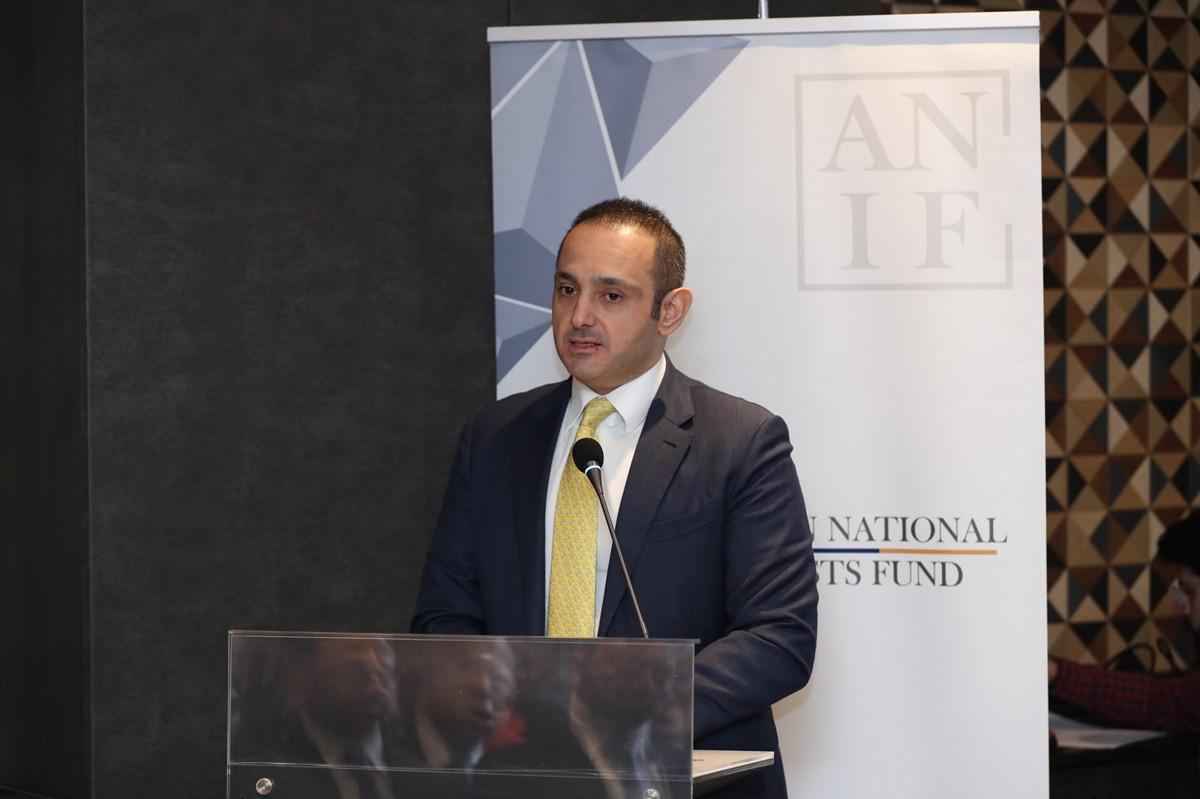
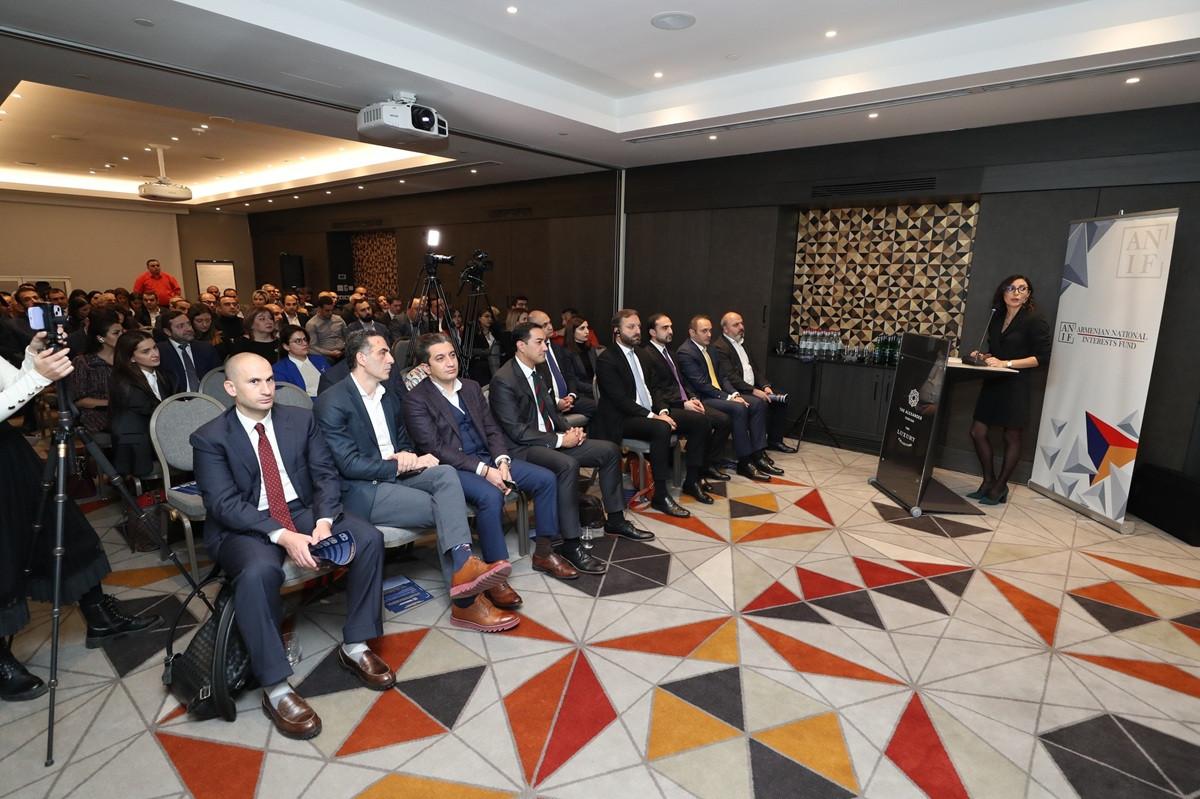
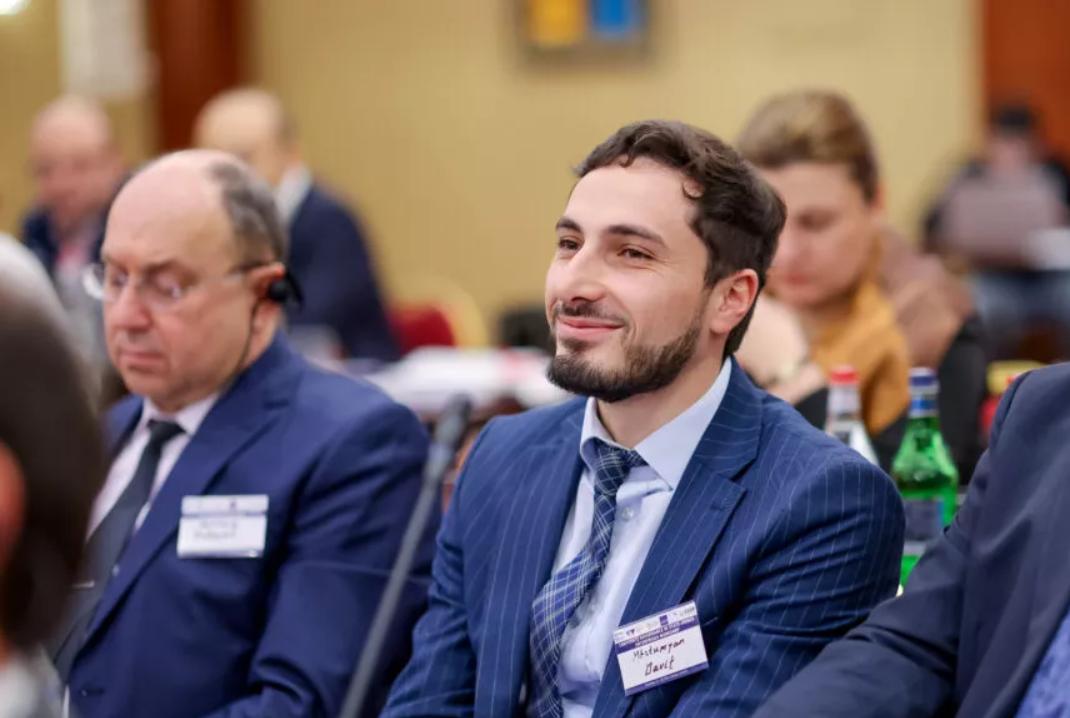





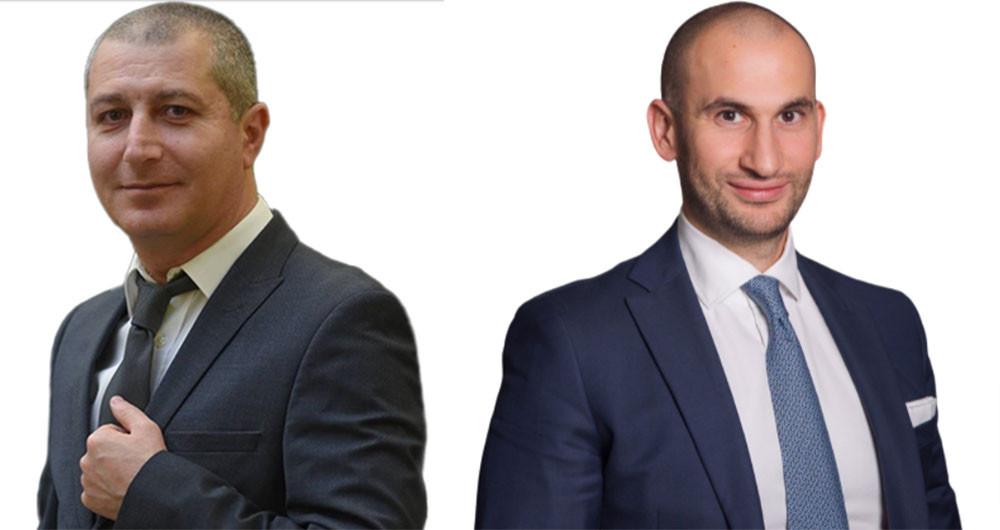
Comments (1)
Write a comment